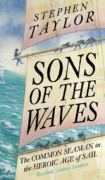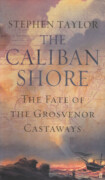I have usually found that one subject leads to another. Often within a line of research,
a new story has emerged. From the castaways of the Grosvenor East Indiaman, for
example, I embarked on maritime history. Along the way, another interest has been
sparked by adventurous women of the Georgian age.
Authors are supposed to keep shtoom about an idea, lest someone else pick up on it.
That can be pointless because good subjects will always attract an eager eye: a year
after I started work and signed a contract for Predator of the Seas, another book was
published on the same subject.
So, going back to Georgian ladies, I reflect now on how much pleasure I had in
researching and writing a biography of Lady Anne Barnard. Here was a woman who
blended adventure with defiance of convention and brilliance as a diarist. High-born
yet egalitarian, she rejected numerous suitors, lived independently by buying and
renting houses and travelled to France to observe the Revolution. That was before
she finally married a junior army officer twelve years younger than she and withdrew
with him to Africa.
Her curious ways attracted gossip right into her final years when she raised an
illegitimate child “of colour” at her home in Berkeley Square.
The idea was not without flaws. “Biographies of women don’t sell,” said an editor at
the time. He was right, but I have no regrets.
Oddly, while I was researching Predator of the Seas, another female of formidable
qualities crossed the horizon. Like Lady Anne, she was a Scot who ventured abroad
into a perilous unknown. Like her, she wrote vividly of foreign lands. And if anything,
she had an even greater taste for escapades that raised the hair of readers safely
tucked beside firesides at home.
Female travel writers were a rarity in the early 19th century. There’s a way to go
before I’ll be sure of an outcome. But exploration is half the fun.








